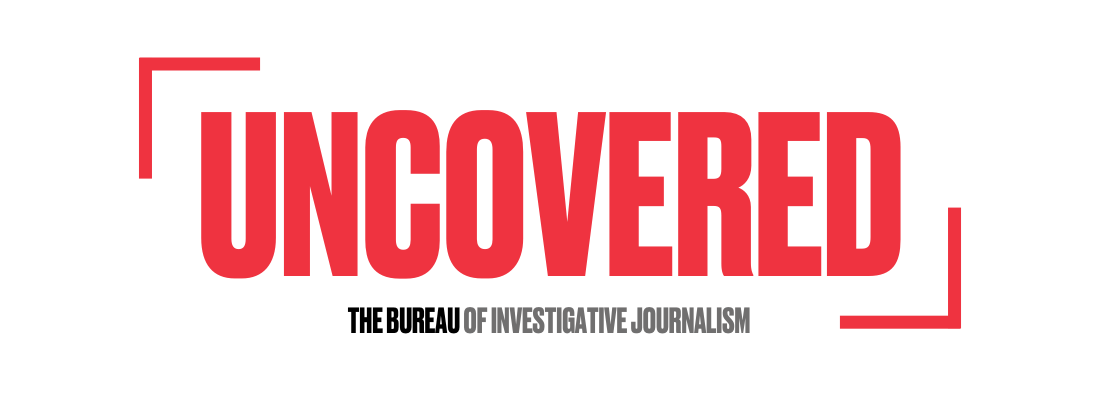
“We were all taken aback when we saw the results”
Hi {{ First name | there }},
You’ve got two big scoops from us this week. But first, I want to pose a question; does the UK have what it takes to become a global climate leader?
There certainly seem to be some promising signs – it’s now the first major economy to halve emissions of planet-heating gases since 1990, according to the Climate Change Committee (CCC), the independent body that rates the UK’s progress on meeting its climate goals.
But the UK still takes a big share of the responsibility for causing the climate crisis, so what more can it do to lead by example and encourage other countries to take similar measures?
Our Environment Editor, Rob Soutar, sought out the answers during London Climate Action Week, Europe’s largest city-wide climate festival with more than 700 events.
From the rise of climate-sceptic political parties, to a continued reliance on fossil fuels, the outlook is pretty complex.
Bad cancer drugs shipped to more than 100 countries
This week we revealed that bad cancer drugs have been shipped to 102 countries around the world. They are on hospital shelves everywhere from low- and middle-income countries like Nepal, Ethiopia and North Korea to wealthy nations such as the US, UK and Saudi Arabia.
These drugs – which treat numerous common cancers including breast, ovarian and leukemia – failed lab tests that measured their quantity of “active ingredient”: the component that fights cancer cells.
Researchers at the University of Notre Dame, Indiana, found that about one fifth of the 189 samples of various generic cancer drugs they analysed failed.
Of the 17 companies to have manufactured failed drugs, 16 are based in India. Five have been previously flagged by regulators for producing substandard drugs. One has been flagged 46 times since 2018.
Some drugs contained so little of their key ingredient that doctors told us they were as good as useless. Other drugs were the opposite: they had too much active ingredient, which is just as dangerous as it can cause severe organ damage or even death.
“Both scenarios are horrendous,” said Shereen Nabhani-Gebara, vice chair of the British Oncology Pharmacists Association. “It’s heartbreaking.”
Doctors from multiple countries told us that they had seen the drugs in question failing to work as expected, leaving patients suddenly unresponsive to treatment. Other patients suffered side effects so toxic that they could no longer tolerate the medicine. “It’s very worrying,” said a pharmacist in Malawi.
This investigation is another example of how our team often operates quite differently to traditional reporters, working with the researchers from Notre Dame. While they are the scientists and did the tests, our reporters tracked the drugs’ distribution around the world to identify which countries they had been shipped to. Then we spoke to doctors, pharmacists and regulators to understand the whole picture.
"We were all taken aback when we saw the results,” said Marya Lieberman, the professor who led the research.
These findings expose huge holes in the global safety nets intended to prevent Big Pharma companies from cutting corners and to protect patients from bad drugs. More than two in three countries around the world are reportedly unable to ensure the quality of medicines their populations are exposed to.
Read the full story to see which companies sold the worst drugs and what they said when we presented them with our findings. We’re still working on identifying patients directly affected by this, an exercise that’s harder than you might expect.
Factchecked!
Each week we reveal a fascinating fact from our reporting…
Did you know?
Just 5% of live animals coming into the UK are undergoing physical checks, due to a nationwide shortage of vets.
Find out more
A recent governmental report, compiled by the National Audit Office (NAO), highlights serious flaws in the UK’s biosecurity and disease monitoring.
The report warns that the government bodies in charge of responding to animal disease – the Department for Environment, Food & Rural Affairs (Defra) and the Animal and Plant Health Agency (APHA) – would struggle to manage a severe outbreak.
Read more here.
How we uncovered the global crime network behind a QR code parking scam
As you might already know if you follow TBIJ on social media, we exposed a multimillion-pound scam that hoodwinks you out of your cash when you scan a QR code to pay at your local car park.
We identified more than 400 car parks across Britain where there had been reports of fake QR codes stuck on payment machines. The worst affected area is Sheffield, where every single one of the council’s 370 parking ticket machines had been targeted.
But we suspected there was more to the story than this fairly routine scam. So we followed the money all the way up the chain.
We found a former police officer who used a fake QR code to pay for his parking and found himself signed up to a subscription for a film streaming website he’d never heard of. Using digital forensics, we traced that site back to a sprawling network of shell companies in the UK and Cyprus that the scammers use to extract cash from their targets.
We followed the money to Dubai, where a skyscraper houses the headquarters of the operation and scam workers are treated to lavish parties and ski trips in between their criminal ventures.
Then we followed the money to Worldline, a £4bn payments services company that allowed the stolen money to be transferred into the hands of the crooks. And we can reveal that Worldline covered up evidence of fraud while continuing to do business with the scam network.
Worldline told us it has improved its risk monitoring since 2023 and ended some business relationships accordingly. (It said its fraud ratio is now below the industry average.) But the scams themselves are still going on today.
It’s a comprehensive investigation where we take apart a huge international operation from nose to tail, using internal documents, interviews and digital forensics. We also find our best journalism is done working with others, so we joined forces with ITV in the UK, the Netherlands’ NRC, Germany’s Der Spiegel and Denmark’s Politiken to embark on a global hunt for the scammers.
The result is the ‘Dirty Payments’ investigation, involving 20 international media partners led and coordinated by the network European Investigative Collaborations (EIC), based on confidential documents and data obtained by EIC.
This story will give you the real picture of how a scam network operates – and might make you think twice next time you’re looking for somewhere to park.
What we’ve been reading
🔴 This shocking piece reveals how a young woman died from cancer after refusing medical treatment – and her brothers are blaming their conspiracy theorist mum: bbc.co.uk
🔴 IV drips claiming to lighten skin are being administered by beauticians with no medical training, and the key ingredient is linked to serious health risks: channel4.com
🔴 In case you missed it, check out former TBIJ reporter Eve Livingston’s feature on domestic abusers within the ranks of the police: observer.co.uk
Thanks,
Franz
Franz Wild
Editor

ADVERTISEMENT
Join over 4 million Americans who start their day with 1440 – your daily digest for unbiased, fact-centric news. From politics to sports, we cover it all by analyzing over 100 sources. Our concise, 5-minute read lands in your inbox each morning at no cost. Experience news without the noise; let 1440 help you make up your own mind. Sign up now and invite your friends and family to be part of the informed.





